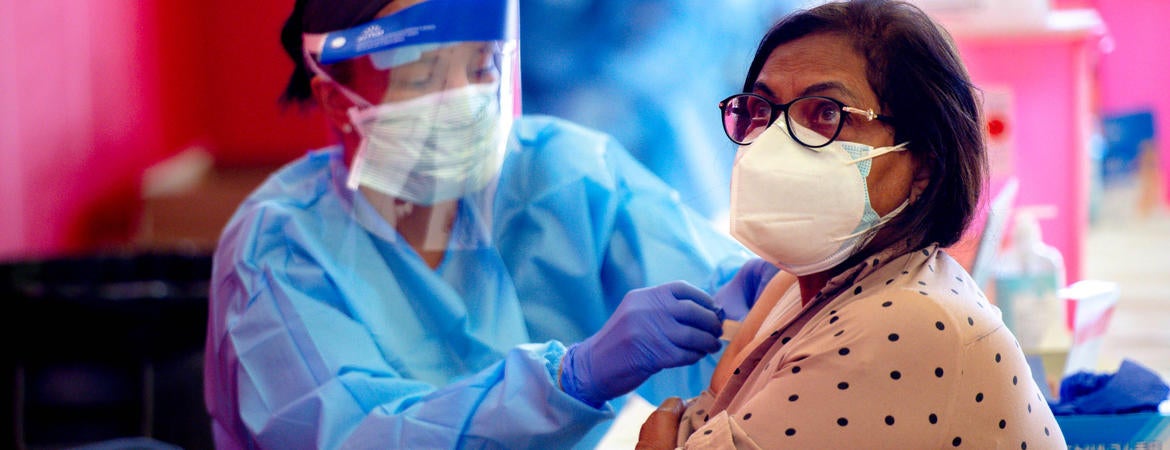Center for Social Innovation

Vaccine hesitancy, vaccine logistics, and vaccine inequity. These are some of the biggest challenges facing California and the rest of the country today. As we move quickly to get as many people vaccinated in high-risk communities as possible, it is important to remember that our communities encountered very similar challenges with respect to the 2020 Census count.
Just as many groups are hesitant to trust government and scientific experts on the safety and efficacy of vaccines, many groups were mistrustful of the federal government and reluctant to provide the Census Bureau their personal information. The census count also encountered significant logistical challenges during the course of the pandemic, needing better coordination between federal, state, and local government agencies. Finally, Census 2020 also generated significant equity concerns for many historically uncounted communities, including immigrants, communities of color, low-income populations, and more.
Of course, the logistical concerns are much more severe now with the COVID-19 vaccine rollout. It was challenging during the 2020 Census to ensure sufficient staffing to make in-person visits during the pandemic and get people to fill out their Census forms. The logistical challenges for the vaccine are much more severe given the scarcity of vaccines and need to safely store and deploy millions of doses through injections.
Still, many of the insights from Census outreach remain relevant today, and we need to reactivate those broad community partnerships in order to ensure a successful vaccine rollout. One major insight is the importance of trusted messengers. Census outreach taught us that government agencies need to rely on a diverse array of trusted messengers, such as faith-based organizations and community media, to ensure high levels of participation.
This opinion piece can also be found in the Orange County Register